Killer McCoy

Brief Synopsis
Cast & Crew
Roy Rowland
Mickey Rooney
Brian Donlevy
Ann Blyth
James Dunn
Tom Tully
Film Details
Technical Specs

Synopsis
Tommy McCoy, a quick-fisted, tough New York City youth, sells newspapers and wages bets in pool halls to help support his parents. Tommy's father Brian, an unemployed vaudevillian, believes his career in show business is finished until he is asked by Father Ryan to perform at the neighborhood association's boxing match. Though offered only ten dollars for his performance, Brian gladly accepts the invitation, and asks Tommy to perform a song-and-dance routine with him. At the event, Tommy enters the boxing ring, challenges champion fighter Danny Burns and wins the fight in a knockout. Tommy's boxing prowess impresses lightweight champion Johnny Martin, who invites him to learn more about fighting by joining his traveling boxing tournament as an entertainer. Tommy and Brian become successful on the road, but their joy is dampened when Brian receives word that his wife has died. Tommy and Brian continue to perform in Johnny's traveling show, and their association with Johnny continues until the champion fighter retires from the boxing ring. Tommy takes over for Johnny in the ring and becomes an instant sensation, scoring one victory after another. Meanwhile, Brian, who has been drinking heavily and squandering his and Tommy's money, amasses a large gambling debt. One day, Tommy learns that he is set to fight Johnny, who is attempting a comeback, and refuses to fight him. However, Tommy is compelled to accept the challenge to make enough money to pay his father's $600 gambling debt to Jim Caighn. In the ring, Tommy takes it easy on Johnny, but the former champion, out of practice, is killed by a light punch. Tommy is devastated by the accidental death and decides to quit boxing. He is forced to continue, however, when he learns that his father has sold his contract to Caighn. Determined to make enough money to buy back his contract, Tommy agrees to fix his fights to help the gambler bankrupt his rivals. Tommy and Caighn profit handsomely from the scheme, but when a romance flourishes between Tommy and Caighn's daughter Sheila, Caighn warns the fighter to stay away from her. On the eve of Tommy's big fight against Patsy Cigones, Brian in a drunken stupor, tells Caighn's rivals that Caighn has been secretly managing Tommy's career and that all of Tommy's fights are rigged. Having bet heavily on Tommy's opponent, Caighn's rivals kidnap Sheila, hold her and Brian hostage and threaten them with harm unless Tommy takes a fall in the eighth round. As the fight approaches the eighth round, Brian overpowers his captors and sends Sheila to the boxing arena to prevent Tommy from taking his fall. Though Brian is killed by his captors, Sheila arrives at the arena in the middle of the eighth round, and her presence inspires Tommy to defeat his opponent with a knockout punch. After the fight, Caighn promises to reform and gives Tommy and Sheila his blessing to resume their romance.

Director

Roy Rowland
Cast

Mickey Rooney

Brian Donlevy
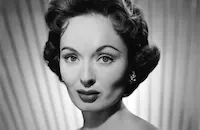
Ann Blyth
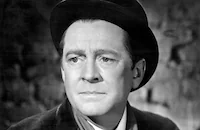
James Dunn

Tom Tully

Sam Levene

Walter Sande
Mickey Knox
James Bell

Gloria Holden

Eve March
June Storey
Douglas Croft

Bob Steele
David Clarke
William Tannen
Cy Shindell
Jack Manolas
Bill Harbach
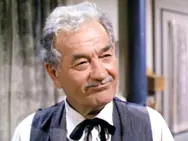
Milburn Stone

Ray Teal
Paul Bryar
Allen Wood

David Gorcey
Larry Cisneros
Marie Harmon
John Kellogg
Eric Roberts
Rudy Wissler
Art Foster
Bert Hanlon
Billy Wayne
Vincent Graeff
Dick Wessell
Alonzo Price
Bill O'leary
Jim Toney
Manuel Ortiz
Jack Roper
John Indrisano

Joe Crehan
Jim Lennon
Tommy Herman
Ben Moselle
Marcus Turk
Drew Demarest
Frank Marlowe
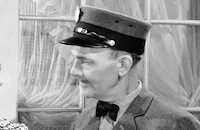
John Butler
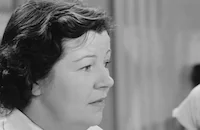
Margaret Bert
Russell Trent
Bob Wendal
Frank Pershing
Cedric Stevens
David Newell
Carl Saxe
Robert Spencer
Phyllis Kennedy

Shelley Winters
Harvey Perry
Ralph Peters
George Meader
Joe Devlin
Allen Ray
Douglas Carter
Anthony Merrill
Jean Dean
Eugene Borden
Albert Pallette
Billy Newell

Wally Cassell
George Chandler
Tiny Kelly
Frank Mayo
Larry Wheat
Jane Green
Frank Mcclure
King Mojave
Jim Drum
Tay Dunn
Bill Lewin
Mickey Martin
Sig Froelich
Larry Mcgrath
Johnny Day
Bob Perry
Mike Pat Donovan
George Goodman
Dutch Schlickenmayer
Chick Collins

Bud Wolfe
Reid Kilpatrick
Jimmy Dale
Cameron Grant
Crew
Frederick Hazlitt Brennan
George Bruce
Jack Dawn
Stanley Donen
William R. Edmondson
Stephen Foster
Cedric Gibbons
Eddie Imazu
John Indrisano
Thomas Lennon
Jay Marchant
George Oppenheimer
Pat Quinn
Joseph Ruttenberg
Douglas Shearer
David Snell
Richard E. Thomas
Edwin B. Willis
Ralph E. Winters
Sam Zimbalist
Dolph Zimmer

Photo Collections
Film Details
Technical Specs

Articles
Killer McCoy
There has always been in his earlier performances something of the human firecracker. It's tempered here, despite his come-out-punching role as Tommy McCoy, who acquires his unwanted nickname when, on his way up, he knocks out his comeback-minded but out-of-shape friend and mentor, who never regains consciousness. What may have played a part as well is Rooney having to reassess and remake his film career after military service in World War II. He now was too old to play boys, no matter how boyish he may have looked. The thoughtful expressions on his face convince as the real thing. Good thing, because this remake of the Robert Taylor boxing movie The Crowd Roars (1938) casts Rooney's young boxer as something of a paragon - undeniably scrappy, but kind, caring, sensitive, loyal, good-hearted, bristling with integrity and even dignity.
The character defects are assigned to others, starting with Tommy's father, played by James Dunn (like Rooney an ex-vaudevillian), who agreeably recycles his much-acclaimed performance in A Tree Grows in Brooklyn (1945), as the good-hearted ne'er-do-well alcoholic albatross of a father. The film eases into the boxing sequences by way of a cane-and-boater song and dance number a kindly parish priest hires the McCoy father-son duo to perform at a neighborhood association charity benefit that includes a boxing match. In no time, the younger McCoy climbs into the ring against the bout's winner, and never looks back. Or wouldn't, if his old man's drinking and gambling didn't keep pulling him into difficulty.
Things get serious when the old man finds himself deep in the hole to Brian Donlevy's shady gambler and the latter's enforcers. To bail his father out, Tommy lets the old man sell his contract to Donlevy's string-puller, who retains the old man as Tommy's nominal manager to avoid scrutiny of his own role in maximizing the profit to be harvested from manipulating bets on Tommy. His strategy is simple, involving Tommy's victories seeming to be the result of lucky knockout punches, which in fact had simply been delayed. This may be the place to point out not for the first time the depth and dependability of the so-called MGM stock company, Donlevy being an example.
Taciturn ruggedness was Donlevy's stock in trade. His was a reassuring presence, with a certain dignity co-existing alongside a toughness kept under wraps. A soft side, too. Here, he leaves no doubt of his ability to handle himself in the company of mobsters beneath his carefully cultivated exterior of a well-mannered, conservatively dressed stockbroker in his tailored suits complete with flower in lapel. Just as Dunn makes old man McCoy likable through his projection of warm-heartedness, Donlevy makes the gambling kingpin human by revealing a soft side when it comes to his only daughter, Sheila (Ann Blyth), stashed in a Connecticut finishing school. She and Tommy meet when the gambler's Connecticut estate is pressed into service as Tommy's training camp.
Blyth was trained in opera and the concert stage, which made her seem a bit different than the usual Hollywood romantic lead in her late teens. The air of gravity and apartness -- which peaked when she played Joan Crawford' daughter in Mildred Pierce (1945) -- sits well in a story that can use all the escape routes it can find from melodramatic cliché. Scenes between Tommy and Sheila are redeemed by a sensitivity and intelligence he's allowed to reveal - although a scene in which she walks in on him playing Chopin on a piano in her living room is a bit much! -- and by her later apology for snobbishly judging him. Not that Donlevy's shady big shot is in the least receptive to the idea of viewing Tommy as a son-in-law. But then the protective father's own profession, so carefully concealed from his daughter (although not really), is something of a social equalizer.
It all comes to a head when Tom Tully's thuggish high roller gets wind of Donlevy's plan to sucker him into a big losing bet, and kidnaps Donlevy's daughter (and Tommy's father) to force Tommy to throw the fight. Tully, who mostly played tough but kind-hearted cops, is as close as the film comes to having a real heavy, and he gets the job done with a display of wiseguy brutishness. The brutishness, by the way, does not extend to the other boxers in the film. Mickey Knox is saintly as the veteran boxer who takes Tommy under his wing and whom Tommy unintentionally kills when he kayos him a few years later, earning him his unwanted nickname. And Bob Steele makes his mark as the loser of a vicious bout against Tommy, only to turn up oozing good nature and a professional's fatalism when he and his wife meet Tommy later in a nightclub.
Killer McCoy would almost remind you of Louis B. Mayer's insistence on movies about nice people with nice problems if it weren't about boxing and rigged matches. The boxing sequences, incidentally, are brilliantly directed and edited by Roy Rowland. They are efficient and high-impact, with adroitly alternating camera angles and the savagery amplified by being intercut with bloodthirsty crowd reaction, including one fat chap who keeps yelling what was to become one of the comic punch lines of the postwar period: "Hit him in the midsection!" Also worth noting in the small role of Tommy's trainer is Sam Levene, whose own breakout a few years later as gambler Nathan Detroit in Guys and Dolls is presaged by the garish postwar men's fashions, with their wide-lapeled sport jackets and even wider vividly patterned ties. Finally, speaking of subsequent reincarnations, Rooney, who seems in retrospect like one of those sand-bottomed inflatable figures who keeps getting punched, but keeps popping upright again, resurfaced with star billing in the boxing classic, Requiem for a Heavyweight (1962), in the corner of washed-up pug Anthony Quinn.
Producer: Sam Zimbalist
Director: Roy Rowland
Screenplay: Frederick Hazlitt Brennan; George Bruce, Thomas Lennon, George Oppenheimer (story)
Cinematography: Joseph Ruttenberg
Art Direction: Cedric Gibbons, Eddie Imazu
Music: David Snell
Film Editing: Ralph E. Winters
Cast: Mickey Rooney (Tommy McCoy/Killer McCoy), Brian Donlevy (Jim Caighn), Ann Blyth (Sheila Carrson), James Dunn (Brian McCoy), Tom Tully (Cecil Y. Walsh), Sam Levene (Happy), Walter Sande (Bill Thorne), Mickey Knox (Johnny Martin), James Bell (Father Patrick Ryan), Gloria Holden (Mrs. Laura McCoy), Eve March (Mrs. Martin), June Storey (Arlene - Waitress), Douglas Croft (Danny Burns, Newsboy), Bob Steele (Sailor Graves), David Clarke (Pete Mariola).
BW-104m.
by Jay Carr
Sources:
Life Is Too Short, by Mickey Rooney, Villard, 1991
The MGM Story, by John Douglas Eames, Crown, 1982
The MGM Stock Company: The Golden Era, by James Robert Parrish and Ronald L. Bowers, Arlington House, 1972
A Biographical Dictionary of Film, by David Thomson, William Morrow, 1980
The Film Encyclopedia, by Ephraim Katz, Macmillan, 2001
Mickey Rooney: Essay by Jeanine Basinger, International Dictionary of Films and Filmmaking 3 - Actors and Actresses
Variety, Oct. 29, 1947
The New York Times, Feb. 12, 1948
IMDb

Killer McCoy
Quotes
Trivia
Notes
Writers Thomas Lennon, George Bruce and George Oppenheimer were the authors of the story screenplay for The Crowd Roars, the 1938 M-G-M film on which this picture is based. The Crowd Roars was directed by Richard Thorpe and starred Robert Taylor and Edward Arnold (see AFI Catalog of Feature Films, 1931-40; F3.0893). Boxer Jack Roper, who is listed as a "Fighter" in the CBCS, played himself in the 1938 film. Although Hollywood Reporter production charts through June 1947 list Elizabeth Taylor as the female lead, she was replaced by Ann Blyth. A July 1947 Hollywood Reporter news item noted that assistant director Dolph Zimmer suffered a heart attack during production of the film.















